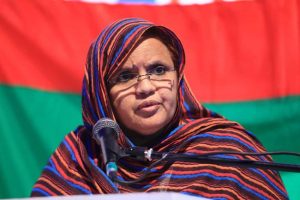With the victory of Mrs. Fatimetou Abdel Malick as the newly elected President of the United Cities and Local Governments (UCLG) for Africa, the continent might have demonstrated its commitment to bringing women into the centre stage of development.

Mrs. Malick, who was elevated to this novel position during the last UCLG general assembly election that took place at the 9th Africities summit in Kisumu, Kenya, will superintend over the affairs of the organisation until 2025 and champion the region’s development agenda globally.
This mandate opens a new chapter in the effort to tackle the disparity between men and women in the implementation of its development plan. The aim is to fight discrimination against women to increase their rights and inclusion in the execution of development programs in cities and territories across the continent.
This is one of the main ambitions of UCLG Africa. The aspiration is based on its belief that women’s empowerment will facilitate the achievement of Africa’s development target.
Currently, the region is faced with the burden of raising a large sum of $170 billion annually to carry out its infrastructural projects, and out of this amount, it has a huge deficit of over $110 billion.
With this in mind, it would be unfounded to talk about women and their role in bridging this gap, whether they live in urban or rural settlements. They are critical to the realisation of economic and sustainable growth in Africa and this fact must be acknowledged to enable them to deliver this cumbersome task.
Agriculture, for example, accounts for over 20% of the total Gross Domestic Product (GDP) of many economies in Africa and it heavily relies on the female demography for labour, trading, and processing of these products.
Therefore, if women are to genuinely be emancipated and included in these processes, it would be important to address the core issues bedeviling their fundamental rights to contribute to the progress of building the continent. One of the ways to curb this menace is to harmonise traditional, marital, land, as well as constitutional laws to avoid conflict and guarantee their rights.
“For my part, I will strive to carry our voice as far and as effectively as possible to contribute to making our organisation a key player at the continental and international level,” Mrs. Malick said.
According to her, the new assignment will be the mandate of all challenges, which can only be taken up together with each one separately in its segment.
Secretary-General of UCLG Africa, Jean Pierre Mbassi, on his part described the gesture as a clear confirmation and resolve by his establishment to integrate women as an essential component of its socio-economic initiative.
“This is the winning Africa,” Mbassi said. The Africa he wants the rest of the world to know about.
For him, they could be no other better way to show this commitment than allowing the women themselves to be in the front seat and driving the continent’s development goal.
The newly elected office-bearers of the establishment are comprised of the 45 members of the UCLG Africa Pan African Council; the 15 members of the Executive Committee; the five-man members of the UCLG Africa Financial Management Committee; the five Vice Presidents, and Nouakchott, a region in Mauritania entrusted with the new Presidency until 2025.
By Etta Michael Bisong, Abuja
